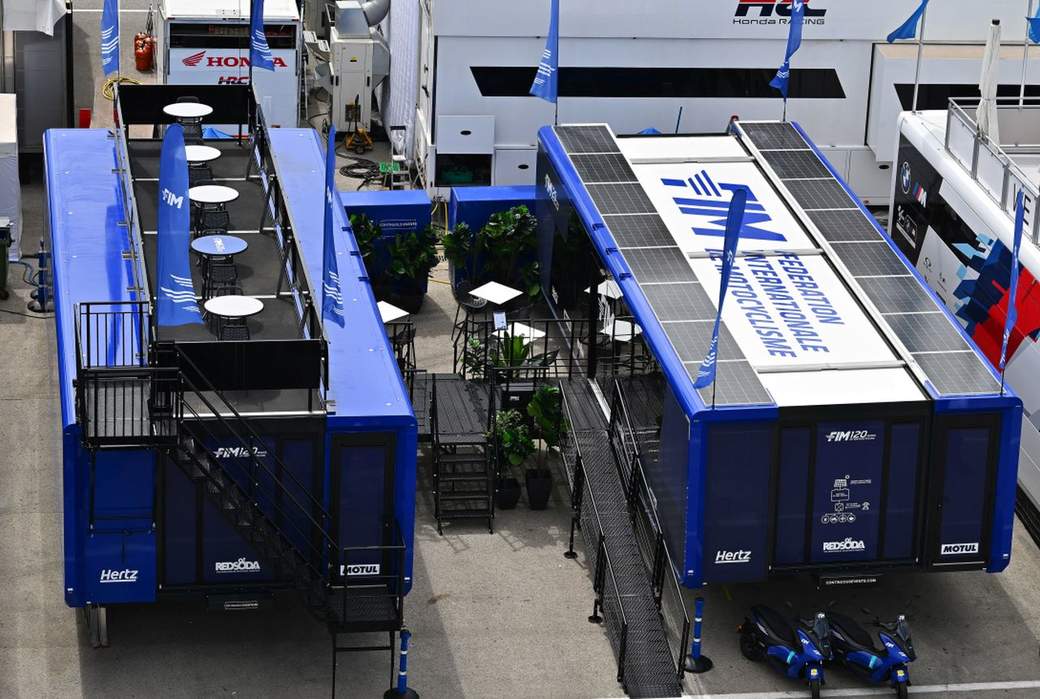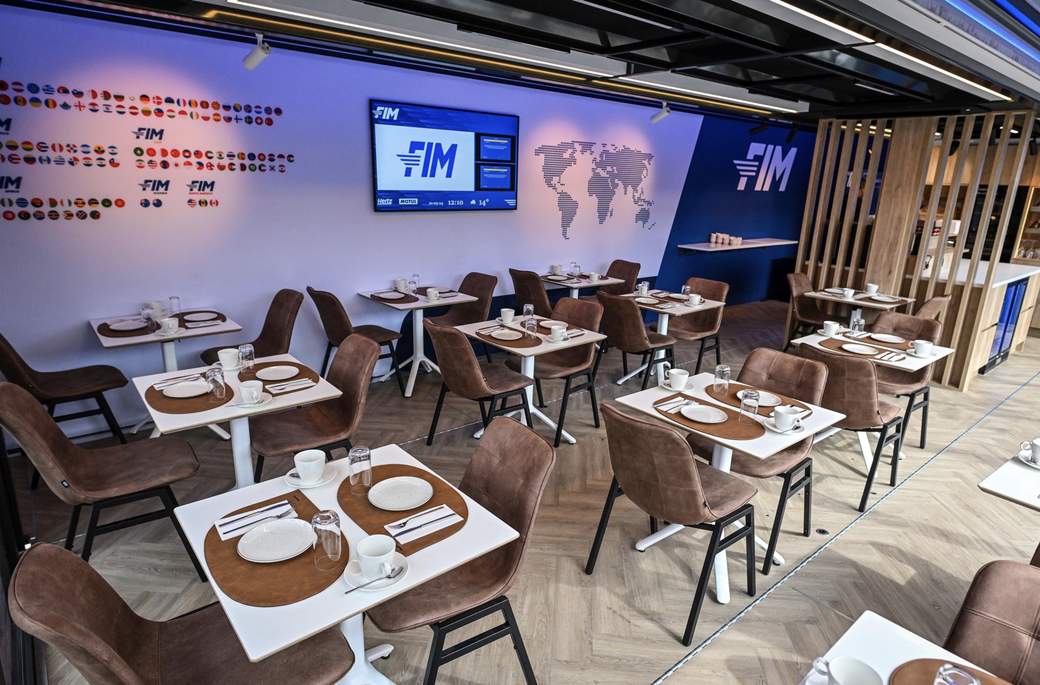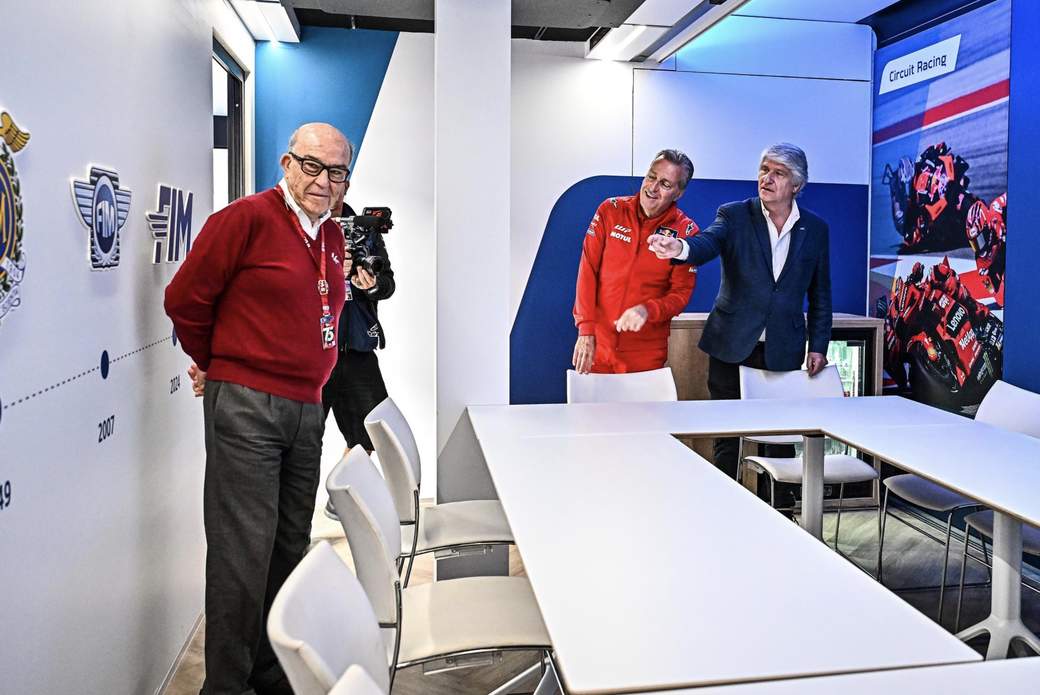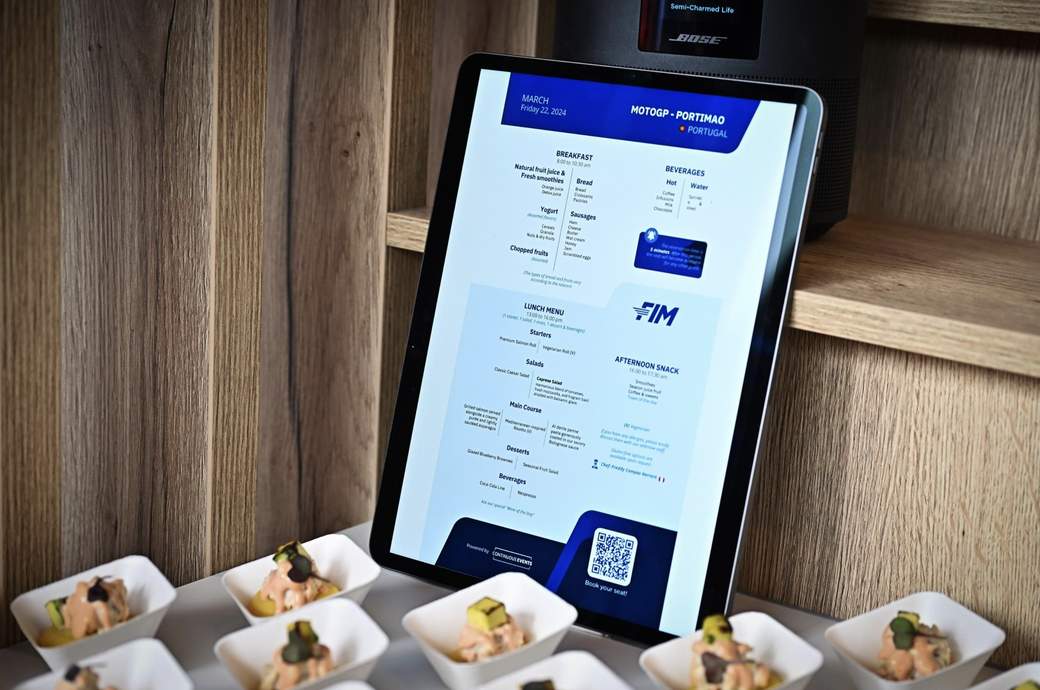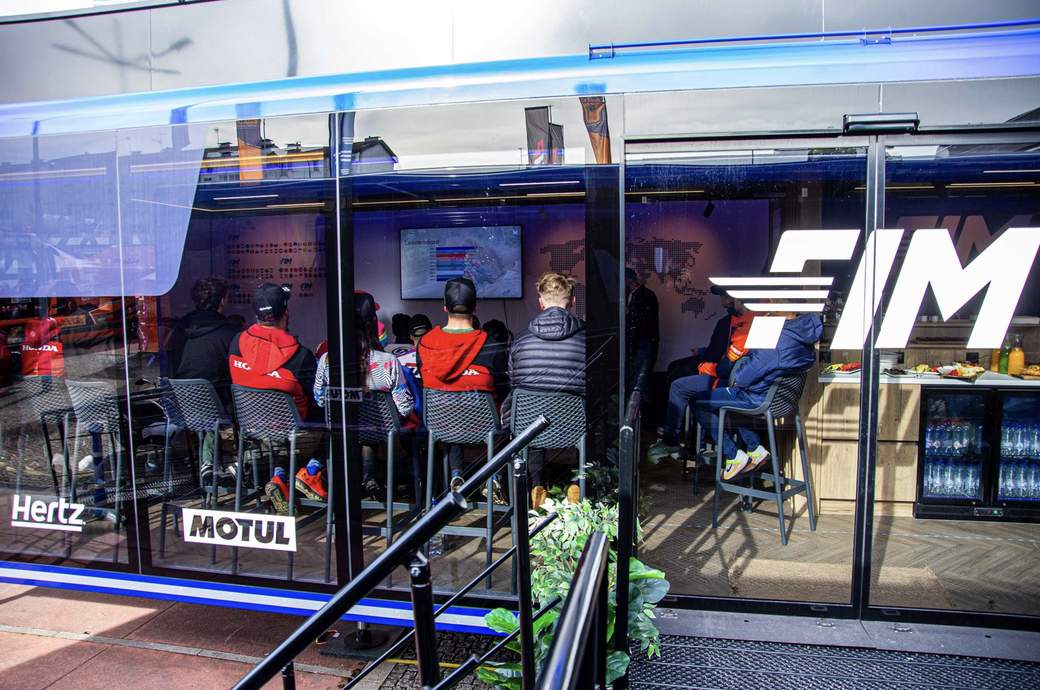The FIM Hospitality, a cornerstone of our events, plays a pivotal role in fostering connections and engagement. It serves as a meeting point for sponsors, organisers, special guests, and FIM Family members, providing a space for them to connect and engage. It is also a hub for commissions, a venue for panel discussions, briefings, and recognition of achievements. Moreover, it functions as an information hub, a networking hotspot, and a platform for press interactions, among other key functions.
At our institution, sustainability is not just a buzzword, but is also a core value that we are deeply committed to. We strive to inspire and align our stakeholders, providers, and members with this strategy, making them an integral part of our journey towards a more sustainable future.
The new FIM Hospitality is equipped with a series of features that meet our requirements. As we wrap up the 2024 FIM Sustainability Week today, we want to share with you why we are so proud of our new FIM Home.
Climate commitment
One of the priorities in our sustainability strategy is to contribute to reducing the climate crisis. For this reason, together with our leading promoters, we are calculating the carbon footprint, but for this, it is necessary to think about drastic reductions.
The new FIM Hospitality delivers positive energy. Thanks to its solar panels, it produces more energy than it consumes. Its 16 solar panels are installed on the roof, capable of reaching a peak power of 5kW. They also work while driving to charge the batteries. This power is provided for its consumption: 12-18 hours of energy that powers lighting, heating, air conditioning, and charging the electric scooters. The excess power is redistributed to the batteries placed under the FIM Hospitality. The batteries, with a storage capacity of 74kWh, can charge four E-motorcycles.
If the FIM Hospitality battery is fully charged by the sun, the entire operation of the offices and the restaurant area can run for 12 hours without consuming energy from the grid.
In some cases, it is necessary to connect to the electrical network to feed some special appliances. On races that cannot be connected to an electrical network (e.g., Paris Dakar), the FIM Hospitality has a generator as an emergency option.
Water: supply and disposal
The FIM Hospitality must comply with the organisation's environmental protection regulations. Each unit is equipped with two 1000-litre tanks: 500 litres for drinking water and 500 litres for waste water. The waste water is stored in the tank until proper facilities are available to empty it. The kitchen unit has a more specialised system, consisting of 3 tanks: 1000 litres for clean water, 1000 litres for waste water, and a 125-litre container that collects wastewater from the dishwasher. This container is equipped with filters to prevent odours and pollution, and it treats the water. Additionally, this unit is equipped with batteries that help fulfil some of the restaurant's energy needs.
Kitchen and food
One of the characteristics of this new concept is the proximity food and market concept. All the food consumed in the hospitality for the guests and the staff is cooked on-site. During the process, the specialised chefs choose regional recipes and avoid deep-fried recipes, which reduces the waste generated in the kitchen. The planning of the weekend menu is detailed, thinking of food waste reduction, and the surplus food is donated to the FIM-Dorna programmes aimed at surplus food collection. Waste management is based on the separation of the waste and stuck to the site's systems.
In the short term plan a plastic reduction, especially in water consumption.
Other characteristics
The walls and windows are specially designed and built with materials that reduce outside sound levels (about 30 dB) and insulate the units to be more efficient with heating or air conditioning. The wood used to build the units comes from sustainable sources, and our branding uses long-lasting materials and inks. Additionally, the aluminium used is recycled.
The routes between each event are planned to reduce kilometres travelled. The units do not have to return to headquarters, resulting in a significant reduction of emissions.
Marcelo Cabalar, Continuousevents Director & Founder stated : "Social responsibility is one of our top priorities. FIM Hospitality is no exception. Twenty-two people worked to build the two units. We have developed that all assembly parts weigh a maximum of 21 kg, and the total setup is completed in 6 hours."
Isabelle Lariviere, FIM Communications & Hospitality Manager, added, "For the FIM, this centre is of utmost importance to enhance our presence where the action is. It is important to have a comfortable place to receive our guests and our staff, with facilities for working and having meetings that are aligned with our sustainability strategy. We are delighted to present our FIM Hospitality, which is the home of all FIM Families and that will also participate and add value to the FIM Sustainability week.”
FIM Communications
